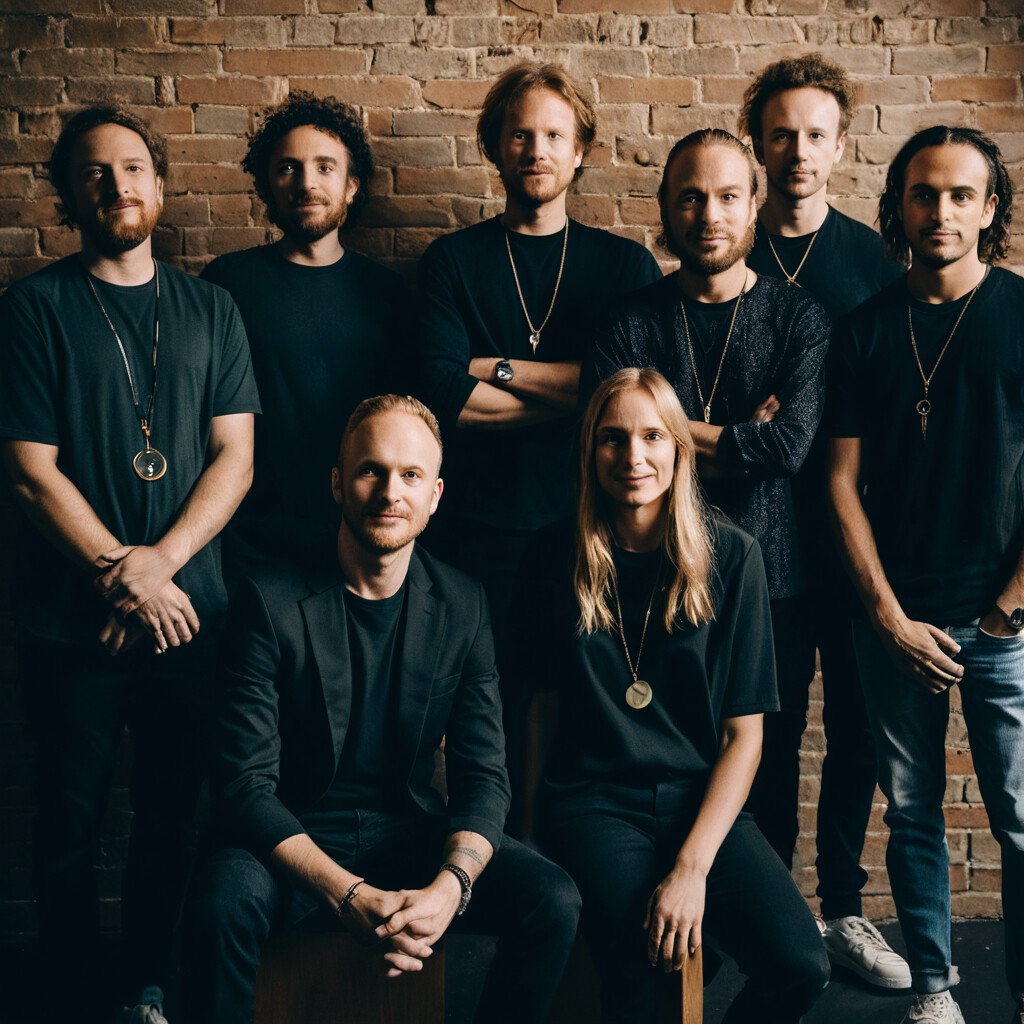
In the modern music industry, having a talented team around you is just as important as having great music. Gone are the days when a musician could rely solely on their talent to get noticed. In today’s landscape, success requires a dedicated, multi-faceted team that can handle everything from marketing and PR to tour management and legal affairs.
This article explores the essential team roles every musician should have, how these professionals contribute to the overall success of a music career, and the importance of collaboration within this team. Whether you’re an emerging artist or a seasoned professional, having a solid team can help you navigate the complexities of the music industry in 2025.
1. The Manager: Your Career’s Compass
Role:
The manager is the nucleus of a musician’s team. A good manager guides the career of the artist, acting as the intermediary between the musician and the rest of the team, record labels, and industry contacts. They are responsible for coordinating the day-to-day activities, overseeing the broader career strategy, and handling negotiations.
Responsibilities:
- Career Planning: Managers work with artists to develop long-term career goals and strategies. This includes everything from release schedules to securing partnerships and brand deals.
- Team Coordination: A manager ensures all team members are aligned and communicating effectively, making sure PR campaigns, marketing initiatives, and touring schedules flow smoothly.
- Contracts and Negotiations: The manager is often involved in negotiating contracts, whether it’s for a record deal, a performance fee, or brand endorsements.
Case Study:
A prime example is Scooter Braun, who guided the careers of stars like Justin Bieber and Ariana Grande. Braun’s strategic thinking and relentless networking were key to Bieber’s early viral success on YouTube, which eventually led to a global superstar career.
2. Publicist (PR): Crafting the Artist’s Public Image
Role:
The publicist or PR agent is tasked with building and managing the artist’s public image. They work to generate media coverage, securing interviews, features, and reviews in magazines, blogs, TV, and radio.
Responsibilities:
- Media Relations: PR agents build relationships with journalists, bloggers, and influencers who can help elevate the artist’s profile.
- Press Releases and Interviews: They draft and distribute press releases for new releases, tours, or other major announcements, and set up interviews for the artist.
- Damage Control: If any negative publicity arises, the publicist is also responsible for managing crises and mitigating any damage to the artist’s reputation.
Case Study:
Beyoncé’s PR team exemplifies this role, especially with the controlled narrative around her surprise release of Lemonade. The PR team helped to generate buzz by selectively releasing content, creating a massive media storm with little to no prior promotion.
3. Booking Agent: Securing Live Performances
Role:
The booking agent is responsible for securing live performances and tours. While PR and social media might get the word out about the artist, it’s the booking agent’s job to ensure that they are performing in the right venues and festivals to expand their fanbase.
Responsibilities:
- Scheduling Tours: Booking agents organize tours, negotiating with venue managers and promoters to secure performance dates.
- Venue Selection: They make sure the artist performs in venues suited to their career stage, whether that’s small clubs for emerging artists or stadiums for major acts.
- Fee Negotiations: Booking agents handle negotiations for performance fees, ensuring the artist is paid fairly for live performances.
Case Study:
CAA (Creative Artists Agency) is renowned for booking some of the biggest acts in the world, from Bruce Springsteen to Lady Gaga. The agency’s ability to connect artists with top-tier venues and festivals has been pivotal in their long-term success.
4. Social Media Manager: Amplifying the Artist’s Digital Presence
Role:
In 2025, an artist’s social media presence is one of their most valuable assets. The social media manager’s job is to craft and maintain the artist’s image across platforms such as Instagram, TikTok, and YouTube.
Responsibilities:
- Content Strategy: Social media managers create and schedule content, ensuring that the artist’s social media pages are always active and engaging.
- Fan Engagement: They interact with fans, responding to comments, and initiating conversations that can help grow a loyal fanbase.
- Analytics Tracking: They monitor the success of campaigns and posts, analyzing which content resonates most with followers and adjusting strategies accordingly.
Case Study:
Lil Nas X is a master of social media, and much of his rise to fame can be attributed to the viral success of “Old Town Road” on TikTok. His team leveraged the power of social media challenges to skyrocket his profile, illustrating the importance of having a savvy social media strategy.
5. Legal Team: Protecting the Artist’s Rights
Role:
A music lawyer is an indispensable part of a musician’s team. They handle the legal aspects of contracts, intellectual property, and copyright issues, ensuring that the artist’s work is protected and that they receive fair compensation.
Responsibilities:
- Contract Reviews: The legal team reviews and negotiates all contracts, including record deals, publishing agreements, and endorsement deals.
- Copyright Protection: They ensure that the artist’s music, lyrics, and other intellectual property are properly copyrighted and that no one is infringing on their rights.
- Dispute Resolution: In cases of contract disputes or other legal issues, the lawyer represents the artist’s interests and works toward a resolution.
Case Study:
Taylor Swift’s legal battles over the ownership of her master recordings highlight the critical role a legal team plays. Swift’s decision to re-record her albums to gain ownership of her music rights was a calculated move, likely influenced by her legal team’s advice.
6. Digital Marketing Specialist: Growing the Artist’s Online Presence
Role:
The digital marketing specialist is responsible for developing and executing online marketing campaigns to grow the artist’s fanbase, sell music, and promote tours. With streaming platforms and social media driving the music industry, digital marketing is more important than ever.
Responsibilities:
- Ad Campaigns: Running targeted ad campaigns on platforms like Facebook, Instagram, and YouTube to increase visibility and engagement.
- SEO and Web Presence: Ensuring that the artist’s website and content are optimized for search engines, driving organic traffic to their online platforms.
- Data Analytics: Using data from streaming services, social media platforms, and Google Analytics to make informed decisions about marketing strategies.
Case Study:
Billie Eilish’s rise to fame is often attributed to a combination of great music and an innovative digital marketing strategy. Her team made use of streaming platforms and social media to generate buzz, culminating in a breakthrough hit that was amplified by smart online marketing.
7. Music Producer: Shaping the Sound of the Artist
Role:
While not always seen as part of the business team, the music producer is an integral part of a musician’s creative and commercial success. The producer helps the artist shape their sound and makes sure the final recordings are polished and professional.
Responsibilities:
- Sound Design: Working with the artist to define their sound, selecting instruments, arrangements, and effects that best represent their vision.
- Recording Sessions: The producer oversees recording sessions, ensuring everything runs smoothly and guiding the artist toward the best possible performance.
- Mixing and Mastering: The final steps of creating a track, mixing, and mastering, are essential for making sure the song sounds great across all platforms and formats.
Case Study:
Pharrell Williams has worked with some of the biggest names in music, from Beyoncé to Daft Punk. His ability to craft unique and hit-making sounds for artists demonstrates the importance of having a talented producer on board.
The Role of Collaboration in Building a Strong Team
While each team member plays a distinct role in the success of a musician’s career, it’s important to highlight that success is most achievable when everyone works in tandem. Here’s why collaboration is essential for a musician’s team:
- Streamlined Communication: When all the key players (management, PR, social media, marketing, legal) are on the same page, they can coordinate efforts for album releases, tours, and major campaigns more effectively. This avoids mixed messages or disjointed promotional efforts that could confuse fans and industry professionals.
- Unified Branding and Messaging: Musicians often rely on their team to communicate a consistent image and sound across all platforms. Whether it’s through social media, public relations, or marketing campaigns, the branding of a musician has to feel cohesive to create a strong impact.
- Maximizing Revenue Streams: When the management team works closely with booking agents, PR, and digital marketers, they can capitalize on every opportunity to generate income. For instance, they can plan a strategic album launch with a corresponding tour, merchandise releases, and a viral marketing campaign, ensuring that every piece of the puzzle fits together.
- Problem Solving: The music industry is unpredictable. Whether it’s a last-minute change to a tour schedule or a sudden controversy that requires crisis management, teams that communicate effectively can quickly come up with solutions, mitigate damage, and get back on track.
Continuous Growth and Adaptation
In an industry that evolves as quickly as music, it’s vital for every member of a musician’s team to stay up-to-date with trends and technologies. Whether it’s leveraging AI-driven music marketing platforms, adapting to new social media algorithms, or tapping into new revenue models like NFTs or blockchain-based royalties, each team member plays a role in keeping the artist relevant.
For instance, social media managers must stay on top of platform changes to ensure that posts are visible to a musician’s audience. Publicists need to understand how digital publications and podcasts have altered the traditional media landscape. The legal team must stay informed about new copyright laws and revenue streams.
Each member of the team needs to commit to continuous learning and adaptation to ensure that the musician remains competitive in the fast-paced world of 2025.
Final Thoughts: Crafting Your Perfect Team
For any musician looking to thrive in the music industry, having the right team is essential. Success in 2025 depends not only on creating great music but on building a robust infrastructure of professionals who can amplify that music to the right audiences and ensure long-term growth.
Assembling a team might feel overwhelming, but each role — from managers and publicists to booking agents and digital marketing specialists — plays a unique part in driving the artist’s career forward. Whether you’re an independent musician seeking to build a team from the ground up or a well-established artist fine-tuning your approach, having a trusted, collaborative team will help you navigate the challenges of the modern music landscape.
So, don’t rush the process. Take the time to carefully select the right individuals who align with your vision, and invest in building strong, communicative relationships across your team. After all, a well-rounded, collaborative team is the backbone of long-term success in the music industry.
Call to Action:
Ready to start building your dream team? Start by outlining your needs and vision as an artist, and seek out professionals who can help bring that vision to life. Whether you’re an emerging artist or an established musician, assembling a dedicated team is the first step toward lasting success in the industry.
